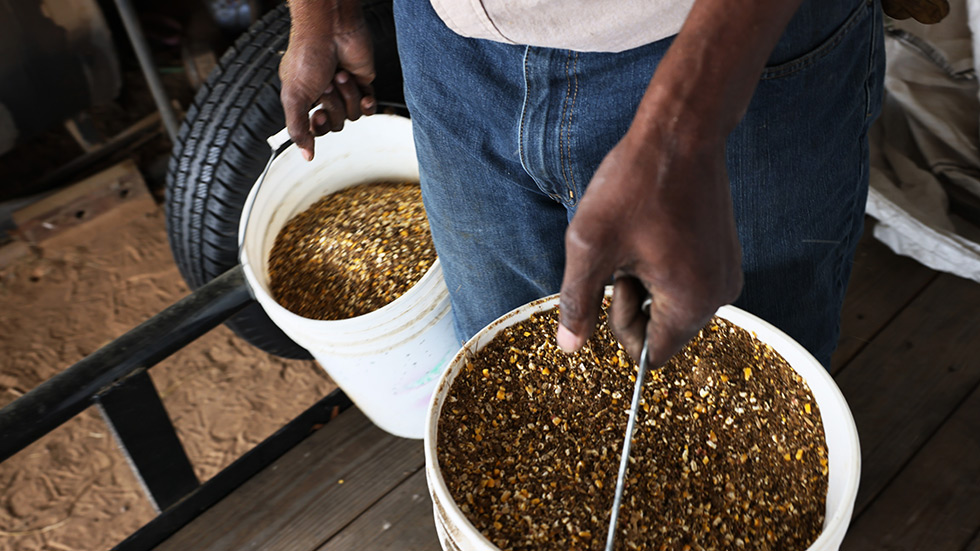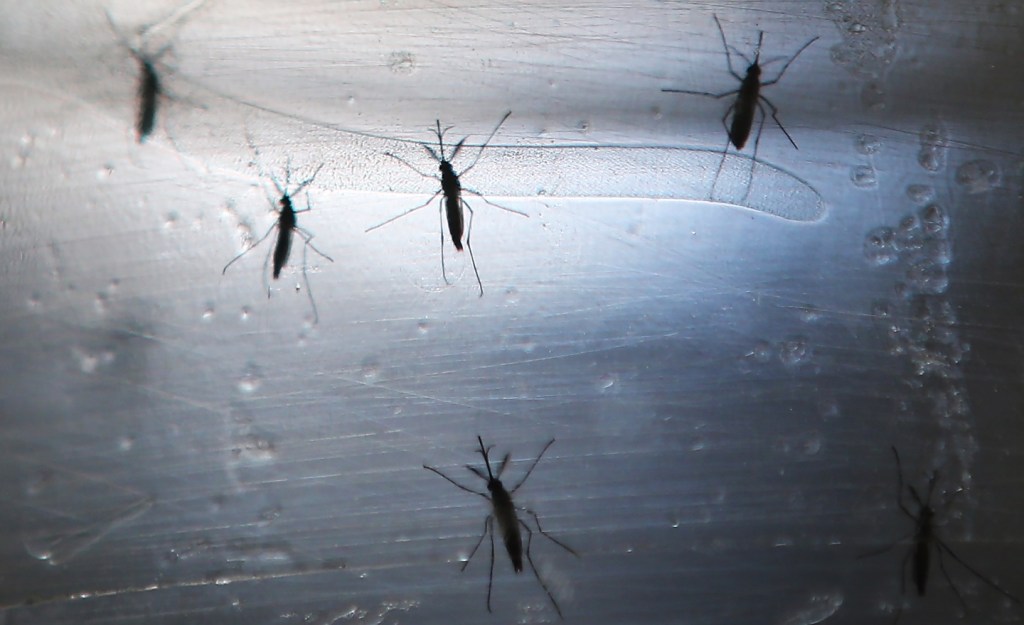Equilibrium/Sustainability — Russian invasion endangers key nuclear plant
Today is Thursday. Welcome to Equilibrium, a newsletter that tracks the growing global battle over the future of sustainability. Subscribe here: digital-staging.thehill.com/newsletter-signup.
Fighting between Russian and Ukrainian troops around the still-operating Ukrainian nuclear plant at Zaporizhzhya — Europe’s largest — led to stark warnings from the head of the International Atomic Energy Agency, ABC reported.
Any damage to the facilities, either from the fighting or from interruption of normal operations “could have severe consequences, aggravating human suffering and causing environmental harm,” Rafael Grossi, director of the U.N. nuclear watchdog, told ABC.
“There is nothing normal,” Grossi added, “about the circumstances under which the professionals at Ukraine’s four nuclear power plants are managing to keep the reactors that produce half of Ukraine’s electricity working.”
Ukrainian officials have asked for a 30-kilometer (18-mile) safety zone around nuclear plants.
Today we’ll look at another rising risk from the fighting — this time in Africa. Then we’ll turn to the passage of a pivotal piece of legislation that could allow victims of water contamination at a Marine Corps base have their day in court.
For Equilibrium, we are Saul Elbein and Sharon Udasin. Please send tips or comments to Saul at selbein@digital-staging.thehill.com or Sharon at sudasin@digital-staging.thehill.com. Follow us on Twitter: @saul_elbein and @sharonudasin.
Let’s get to it.
Impact of Ukraine fighting reaches Africa

Russia’s invasion of Ukraine is having consequences far away in Africa, where surging energy and grain prices are already fueling hardship — and may soon be a political problem for governments across the continent.
That’s just one aspect of what is turning into a global sustainability crisis, with ramifications far beyond Russia, as the world’s economies are roiled by the shock waves of economic sanctions, the closing off of Ukrainian wheat shipments and premonitions of a future shutdown of Russian oil.
First words: “Getting petrol is like digging for gold. We spend hours looking for fuel, and when we get to a [gas] station, there’s no guarantee we’ll even get any,” Joy Agbonifo, a motorist in Lagos, Nigeria, complained to German broadcaster DW.
Behind the lines: Oil prices were already rising across the African continent before Russia invaded Ukraine on Feb. 24 — but fears that Europe could cut off Russian oil exports, or that Russia might cut them off itself, drove prices above $100 per barrel on Tuesday for the first time in eight years, The Hill reported.
Though Nigeria is a net-oil exporter, the country’s four refineries are all closed, and — like nearby Angola and Chad — its government guarantees citizens highly subsidized fuel, which it now struggles to provide, DW reported.
Knock-on effects: Since petroleum is used in harvesting, moving, packaging, cooking and refrigerating food, the rise in oil prices had already contributed to a parallel spike in food prices in countries like Togo, Kenya and Ivory Coast, DW reported.
Now things are getting worse: “Sometimes, we go to bed hungry because life has become so expensive,” Nairobi market vendor Beatrice Atieno told German newspaper Der Spiegel.
“Bread, especially, is something I can no longer afford to buy. We eat potatoes for breakfast instead,” Atieno added.
Where’s the wheat? Most of Africa’s grain comes from Russia and Ukraine, which export it down through the Black Sea, Der Spiegel reported.
But Ukraine’s Maritime Administration closed Black Sea ports on Monday, according to Reuters. And Mariupol, a seaside hub, is under ongoing bombardment by Russian shells and missiles, the Financial Times reported.
“We have been shelled constantly for the past 20 hours,” Pyotr Adrischenko, an aide to Mariupol’s mayor, told the Times. “For two days now, we have been without heat, electricity and water.”
AFRICA, ASIA SHIPMENTS CUT OFF
Ukrainian grain provides more than half of the food that the U.N. World Food Program gives out in conflict regions, and most of North Africa’s wheat, as well as that of Kenya, comes from Russia and Ukraine, as Der Spiegel reported.
With wheat futures already up 40 percent this year, according to Reuters, the past week’s warning signs of a global shortage are pushing bread out of the price range for some in a country where food prices were already a charged political issue, according to Der Spiegel.
This is only the beginning: “The prices will rise even further because of the war, and the poorest will suffer the most from the consequences,” Kenyan agricultural economist Timothy Njagi told Der Spiegel.
China holds the balance: Major wheat exporters — like the U.S., Europe, Russia and Australia — had already seen their wheat inventories falling to nine-year lows before the invasion, leaving them (if Russia and Ukraine were excluded) able to feed the world for “less than three weeks,” Reuters reported.
Wheat is a global commodity, meaning that other suppliers may be able to pick up the slack — but if the crisis interrupts spring planting in Russia and Ukraine, that shortage could grow greater, Reuters reported.
The majority of global wheat inventories not held by any of the major exporters rest with major importer China, which will hold 131 million metric tons (146 million tons) or 47 percent of global supplies by year’s end — the sort of strategic reserve that countries like Kenya and Saudi Arabia are now struggling to create for themselves, as Reuters reported.
Last words: “You need to look at what’s available,” Dan Basse of consultancy AgResource told Reuters, speaking about global wheat inventories.
“If someone has a problem, there is surely not enough supply.”
BE IN THE KNOW
We’ve got you covered morning, noon, and night! Sign up now for The Hill’s new Evening Report.
Camp Lejeune toxic water victims eye justice

A bill that could allow military families to seek justice for decades of water contamination at Marine Corps Base Camp Lejeune in North Carolina passed with bipartisan support as part of a broad piece of toxics legislation in the U.S. House on Thursday morning.
If the legislation goes on to receive Senate approval and become law, the Camp Lejeune Justice Act would enable individuals who suffered from on-base water contamination to pursue lawsuits for their illnesses.
The bill advanced within the Honoring our PACT Act of 2021 — an expansive act to improve benefits for veterans exposed to toxins — in a 256-174 vote, with 222 Democrats and 34 Republicans in favor.
What’s in the bill? The act would allow those exposed — even in-utero — to water contamination at the base for at least 30 days between Aug. 1, 1953 and Dec. 31, 1987 to file a claim in the U.S. District Court for the Eastern District of Norther Carolina. To do so, the bill would override a North Carolina legal hurdle that has otherwise made such suits impossible.
“A national issue”: “Anybody who served in the United States Marine Corps, and went for combat training, probably went to Camp Lejeune in North Carolina,” Rep. Matt Cartwright (D-Pa.), the Camp Lejeune bill’s sponsor, told Equilibrium on Wednesday.
“So this is not just a North Carolina issue; it’s a national issue,” he said.
REFRESHER
What happened at base? Exposures to contaminants — such as trichloroethylene (TCE), tetrachloroethylene (PCE), vinyl chloride and others — at Camp Lejeune likely increased the risk of certain cancers and adverse birth outcomes from the 1950s through February 1985, according to the Agency for Toxic Substances and Disease Registry (ATSDR).
Some such adverse birth outcomes include blocked nasal passages, eye defects, low birth weight, fetal death, major malformations, miscarriage, neural tube defects, oral cleft defects and smallness for gestational age, ATSDR research stated. Among the cancers are leukemias, kidney cancer, Non-Hodgkin lymphoma, liver cancer, breast cancer, cervical cancer, lung cancer and others.
The Marine Corps first discovered contaminants in the drinking water generated by treatment plants on base in 1982.
Seeking justice — decades later: Retired U.S. Marines Corps Master Sgt. Jerry Ensminger attributes his daughter’s leukemia to the time she spent in-utero at Camp Lejeune. Janey Ensminger died of the cancer at age nine in 1985.
“The entire first trimester of Janey’s pregnancy was there on the base,” Jerry Ensminger, told Equilibrium on the eve of the bill’s passage.
LEGAL RECOURSE OUT OF REACH
Seeking legal recourse had never been an option for Camp Lejeune victims, due to a strict North Carolina rule called a “statute of repose.”
Statutes of repose are different from statutes of limitations, which bar claims after a certain amount of time passes following an injury. Instead, statutes of repose begin running on the date of the defendant’s action — even if an injury has not yet occurred, according to the Wex Law dictionary.
North Carolina is among the few states to have a statute of repose on polluters — prohibiting cases if more than 10 years have passed since the contaminating event. But the new act would waive that statute for Camp Lejeune claims, Cartwright explained.
How hard would those cases be to win? Even if these provisions become law, plaintiffs who file suit still must undergo due process, as well as prove a causal link between their injury.
Asked how he thought they might fare in court, Cartwright said that “it’s going to vary on a case-by-case basis.”
“This is just to give people a chance at their day in court,” Cartwright said.
The government could face a high price: Cartwright expressed hope that plaintiffs wouldn’t have to suffer through trials, surmising that the government might opt for a collective resolution rather than shoulder the formidable costs of so many court cases.
“If we do get our day in court, I think that there’s going to be some scurrying going on in the Department of the Navy and in the Department of Defense,” Ensminger agreed.
“They’re going to try to run to Congress to get some kind of Band-Aid thing to get them out of the hot seat,” he added.
Last words: Ensminger described the bill’s passage as a “first step.” He and his fellow Marines, he said, served to defend the rights of Americans “to have their grievances heard in front of a court of law.”
“That was one of the rights that we were there serving to protect while we were being poisoned by our own leaders,” he said.
To read the full story, please click here.
Thursday Threats

Climate change strengthens La Niña’s destructive wet-dry cycle, brings invasive mosquitoes to Iowa and risks losing urgency for U.S. policymakers.
Climate change augments dichotomous effects of La Niña
- As California recorded its driest January and February in history, thousands are fleeing formidable floods in Australia — dual effects of La Niña, the Los Angeles Times reported. While La Niña is part of a natural cycle of the Pacific Ocean — causing trade winds to push warm water to the west — human-induced climate change is amplifying the system’s effects, bringing the Southwest “a second consecutive no-show rainy season amid the region’s driest 22-year period in 1,200 years,” according to the Times.
Warming temperatures brings Asian Tiger mosquito to Iowa
- The Asian Tiger (Aedes Albopictus) mosquito — which can transmit dengue, chikungunya and zika virus— is beginning to crop up in three Iowa counties, surprising scientists with its ability to survive the winter and make a home in the state, Nexstar station SiouxlandProud reported. “What we ultimately saw was that these mosquitoes have been able to establish themselves and survive the winter,” Ryan Smith, an Iowa State entomology professor, told SiouxlandProud.
Environment on U.S. back burner after Russian invasion of Ukraine
- President Biden barely mentioned climate change in his State of the Union Address — despite the grim U.N. climate change report released on Monday, The New York Times reported. That has progressives gnashing their teeth. “The president did not articulate the long-term opportunity for the U.S. to lead the world in breaking free of the geopolitical nightmare that is oil dependency,” Paul Bledsoe of Progressive Policy Institute told the Times.
Please visit The Hill’s sustainability section online for the web version of this newsletter and more stories. We’ll see you on Friday.
We want to hear from you! Take our newsletter survey to provide feedback on our offerings.
Copyright 2024 Nexstar Media Inc. All rights reserved. This material may not be published, broadcast, rewritten, or redistributed..











